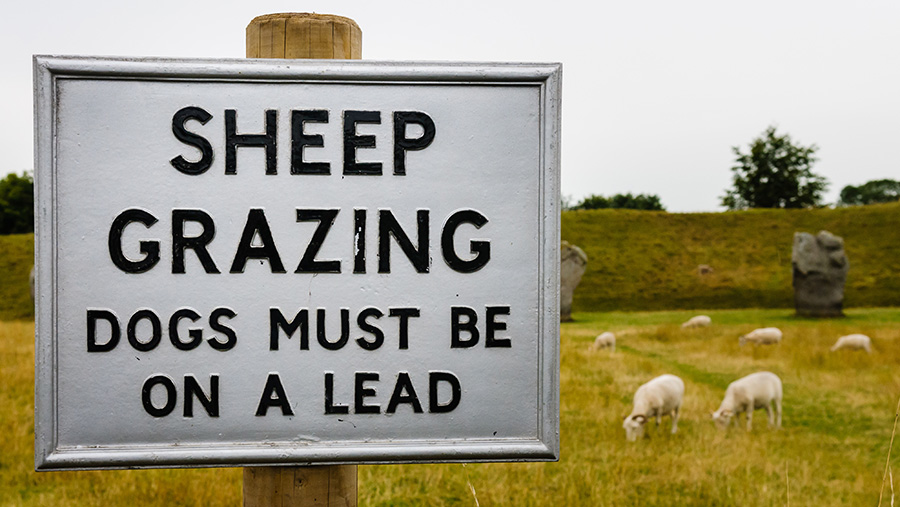Police Scotland send Easter livestock worrying warning
 © Stephen/Adobe Stock
© Stephen/Adobe Stock Farm groups and councils in Ayrshire have joined forces with Police Scotland ahead of the long Easter weekend to remind dog walkers about the country’s tough new livestock worrying laws.
Reports of an increase in attacks on livestock in East Ayrshire, which is popular for dog walking, prompted the campaign to warn owners they could be fined up to £40,000 and face a jail sentence if their pet kills or injures farm animals.
See also: Livestock attack bill passes final hurdle in Scotland
The Ayrshire Partnership Against Rural Crime, which brings together local councils and farm groups including NFU Scotland to work with Police Scotland, is running the campaign throughout the lambing season.
NFU Ayrshire regional manager Christine Cuthbertson said: “Easter is a time for the arrival of baby lambs and calves, and we ask that those taking access respect their own safety and that of expectant and new mums by avoiding fields with livestock and always having your dog on a lead or under very close control.
“We want people to enjoy their walks as it is so important for people’s wellbeing, but it is vital that dog owners act responsibly to keep everyone safe and well.”
Dog attacks on livestock cost UK farmers £1.52m in 2021, according to claims estimates by rural insurer NFU Mutual.
Take responsibility
Insp Julie McLeish from Scotland Police said she was hopeful the tougher livestock worrying law would reduce attacks.
The legislation was tabled by Emma Harper MSP and came into force at the end of 2021. It received widespread support from farmers and rural groups in Scotland frustrated by the attacks on livestock.
Ms McLeish said: “Its introduction is timely given the increase in dog ownership experienced during Covid and the aim of the campaign is to educate and raise awareness among dog owners, whether new or experienced, that their dog is very much their responsibility.”
Advice for farmers
If a farmer or landowner has concerns regarding the behaviour of a visitor or their dog, they are advised to:
- Point out any restrictions in place and explain clearly why certain areas are off-limits or inadvisable to enter
- Suggest an alternative route for them to walk
- Walk away if you feel threatened or unsafe at any point.
- If an attack is taking place, try to get photos and descriptions of the dog, people, vehicle if applicable, and time of day. Call the police using 999 stating a crime is in progress, giving as much information as possible
Source: National Access Forum
